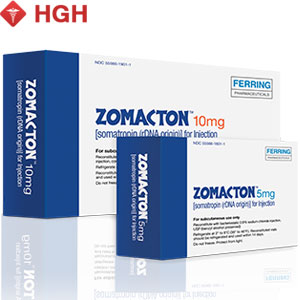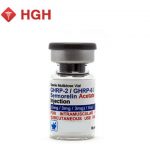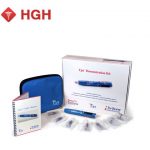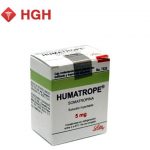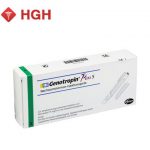
Human growth hormone, or HGH, is a naturally occurring peptide hormone that is necessary for growth, cell regeneration, and cell reproduction. As children, humans have an abundance of HGH in their bodies. However, as men and women age the amount of HGH that is produced continues to decline, which can have dramatic effects on health and cognitive function.
Why is HGH Important for Health?
Without proper amounts of HGH, the body cannot function properly. In fact, HGH is necessary for a number of biological processes, such as strengthening of bone and muscle, protein synthesis, brain growth, liver and thyroid function, and maintenance of a healthy immune system, among others. More recently, scientists have discovered the important role that HGH plays in mental and emotional well-being, cognitive function, and energy levels.
What Happens to HGH Levels as Men Age?
Since HGH is needed to a lesser extent as men grow older, less and less of the hormone is found within the body. In general, men begin to experience a 10 – 15% loss of HGH in their blood after the age of 30.
Men Over 30
Normal aging processes that are attributed to decreased HGH include less energy, decreased metabolism (resulting in belly fat), graying hair, and the onset of wrinkles, such as crow’s feet. Sexually, men will begin to experience less sexual frequency and duration.
Men Over 40
After 40, metabolism will continue to slow, while energy and endurance levels further decrease. Men will notice less strength – due to muscle loss – and a receding hairline may become noticeable. Thinning and gray hair are also likely to occur during this decade.
Skin elasticity will decrease, while vision worsens. Sexual desire lessens the frequency of sex, and the onset of sleep disorders is also common. Most men will begin to notice forgetfulness after 40.
Men Over 50
Fatigue due to sleep disorders and stress will become an increasing problem, as will stubborn weight gain, thinning hair, muscle atrophy, and sagging skin. The immune system will weaken, resulting in more frequent illnesses that can interfere with work and daily life. Eyesight, memory, and cognition continue to wane. Changes in mood and erectile dysfunction can become frustrating for both men and their partners.
Men Over 60
After the age of 60, lack of HGH can make aging men feel like a shell of their former selves. Fatigue, loss of energy, and low motivation will become normal, while productivity is hindered by loss of memory and lack of an ability to focus. Depression can set in and sex drive will become nonexistent.
What is Growth Hormone Deficiency?
When HGH is not properly produced and secreted from the pituitary gland, growth hormone deficiency occurs. As men age, HGH levels naturally decline; however, external factors such as poor diet, stress, a sedentary lifestyle, inadequate sleep, head trauma, brain tumors, and certain illnesses can further decrease the amount of HGH in the body.
Symptoms of growth hormone deficiency include:
- Weight gain
- Muscle atrophy
- Reduced bone density
- Hair loss
- Insulin resistance
- Fatigue
- Low motivation
- Dry/thin skin
- Impaired cognition
- Loss of memory
- Poor concentration and focus
- Depression
- Erectile dysfunction
Human growth hormone levels in the blood are tested via the IGF-1 blood test. For adults, HGH levels between 200 and 450 ng/ml are considered normal.
How Can HGH Levels in Men Be Maintained?
If you are concerned you may be suffering from growth hormone deficiency, inquire with your doctor about a blood test to determine your HGH levels. If there is evidence of growth hormone deficiency then hormone replacement therapy in the form of HGH injections are commonly prescribed.
Human growth hormone injections can reverse many of the signs and symptoms of growth hormone deficiency, restoring energy, mental focus, and vibrancy to your life. In a short amount of time you will begin to look and feel younger, as well.
To learn more about growth hormone deficiency and how to reverse your symptoms, consult with hormone replacement therapy specialist today.
